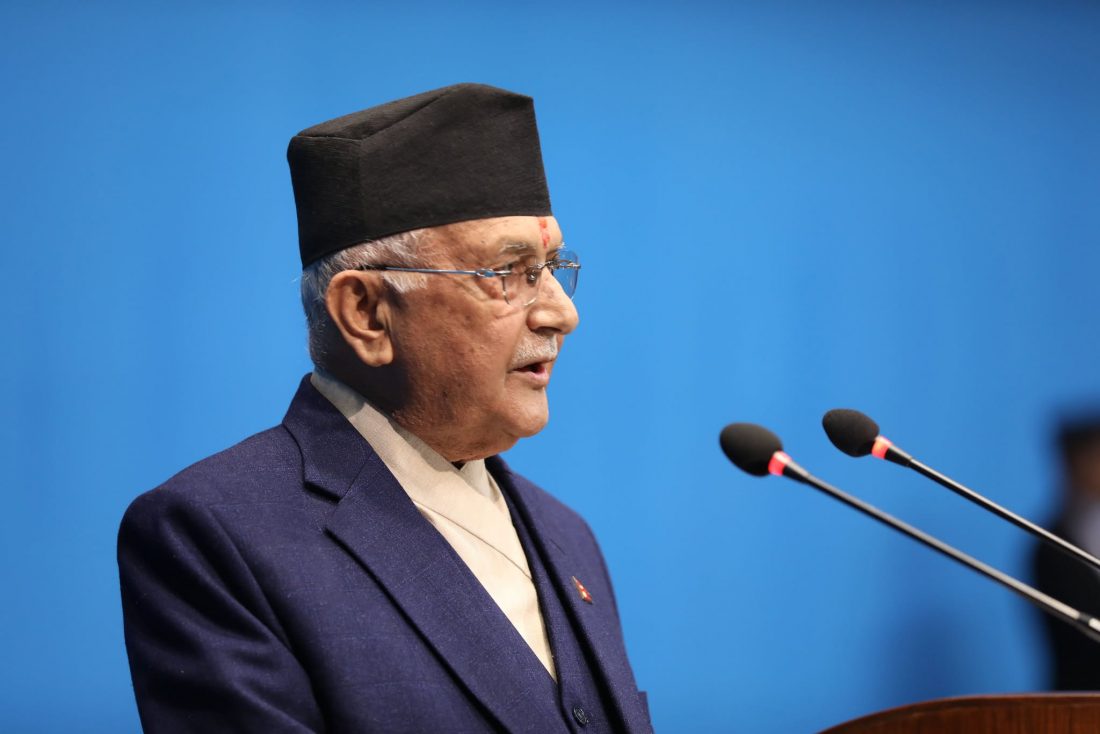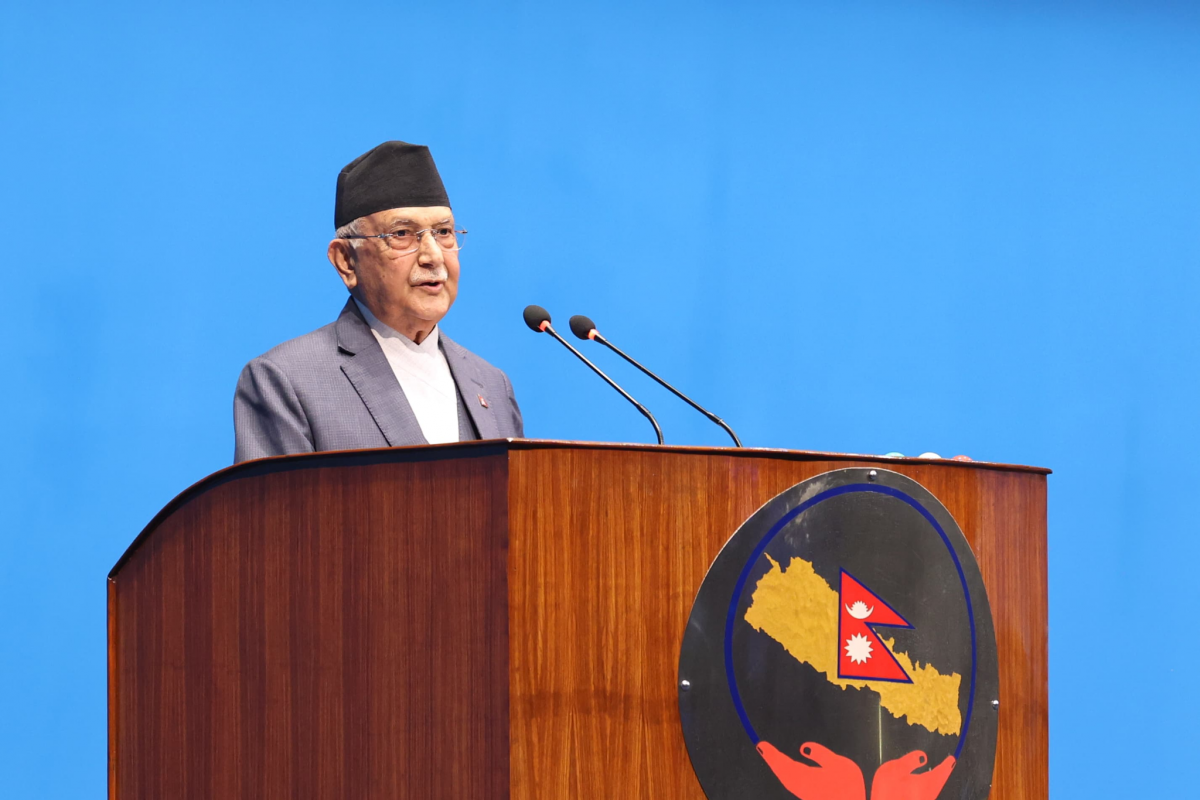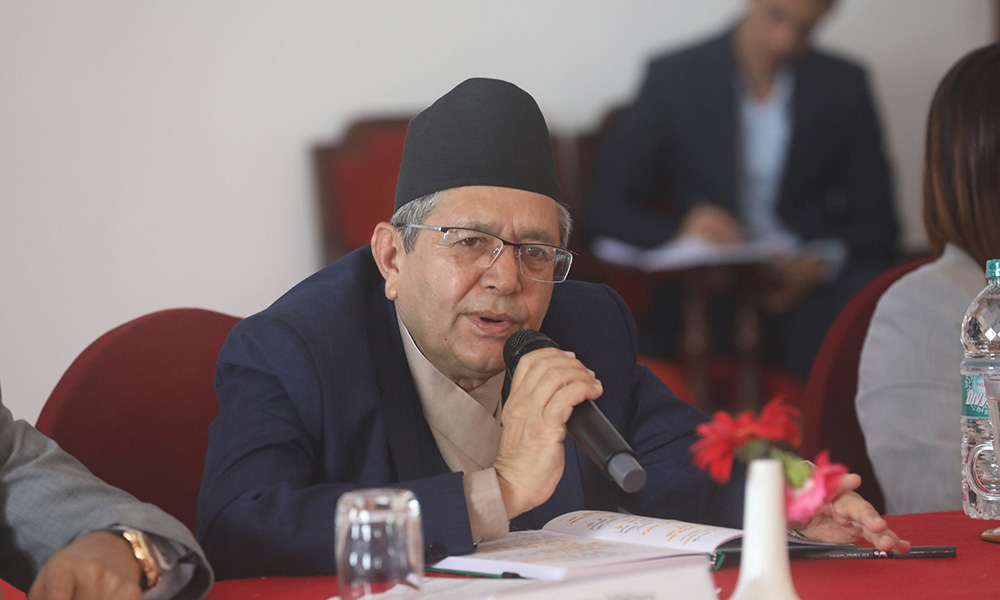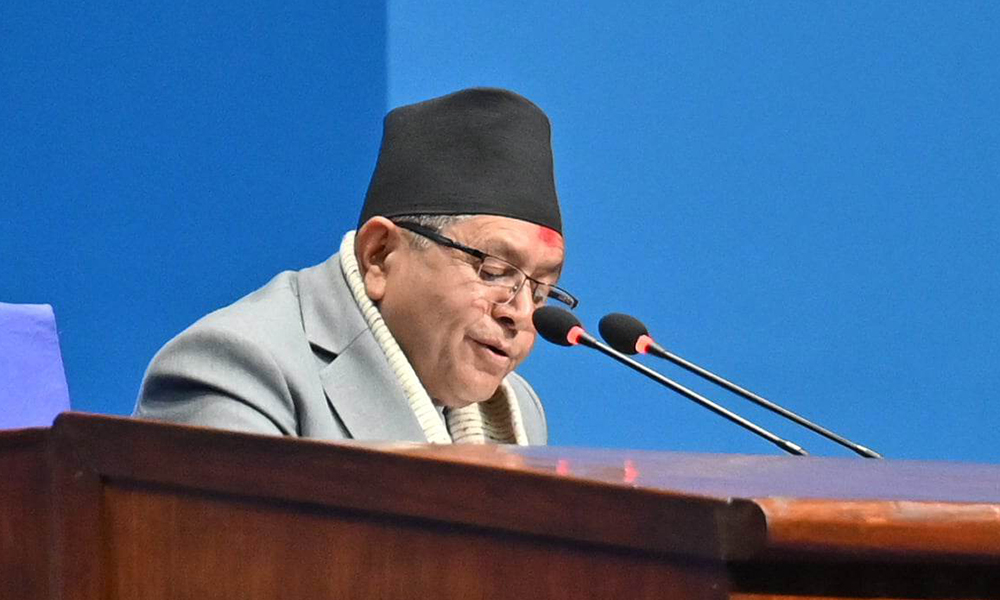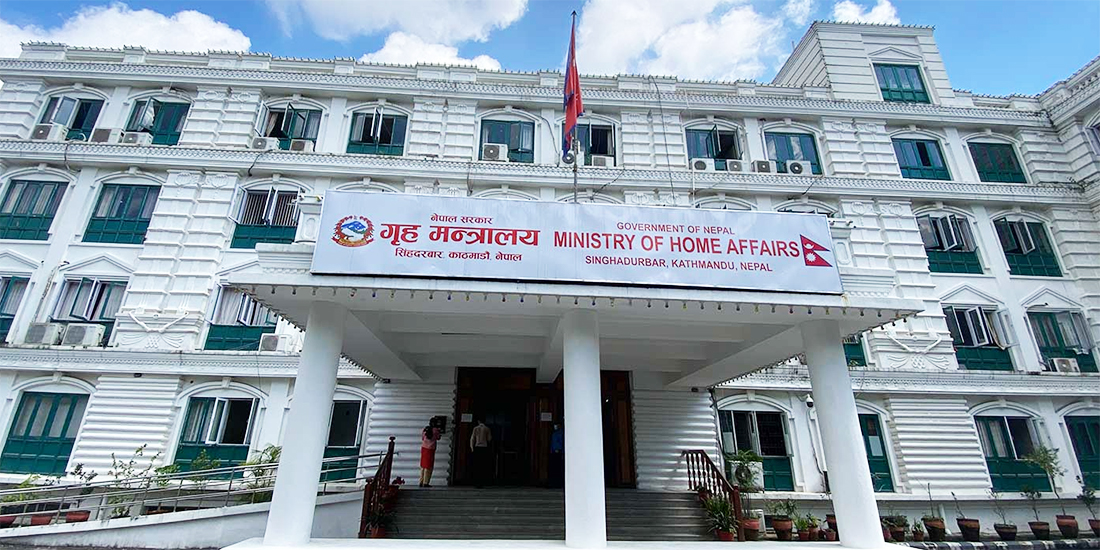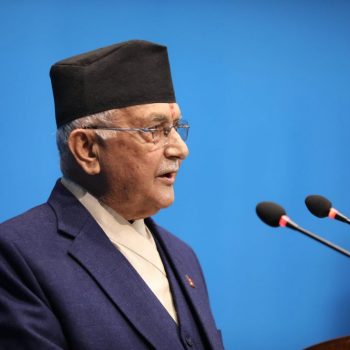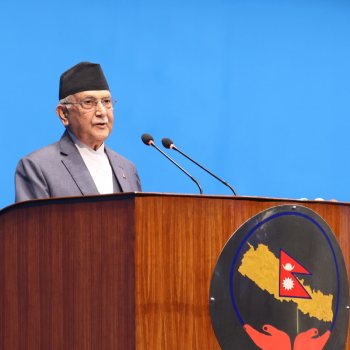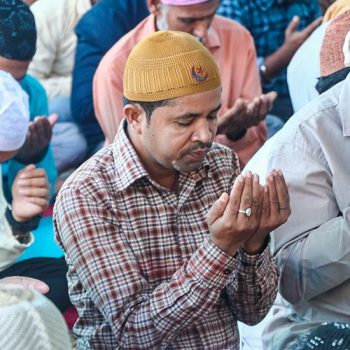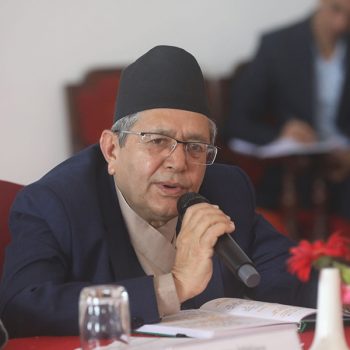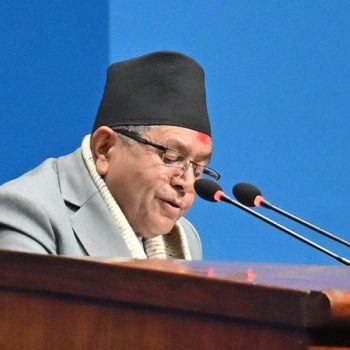The ‘side effect’ of Article 76 (5) – President or Oli and Deuba at fault?
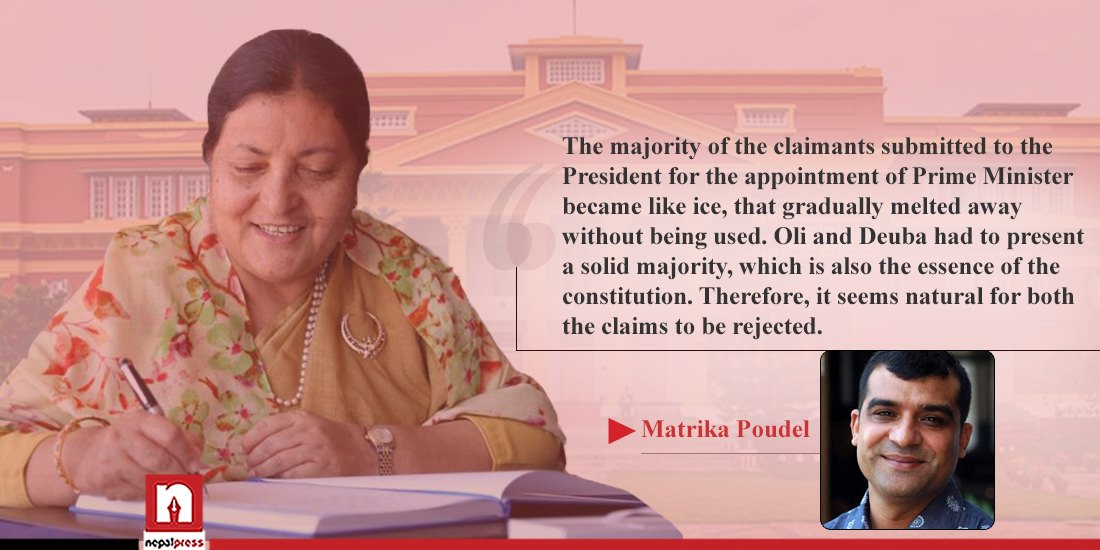
KATHMANDU: Article 76 (5) of the Constitution is now in national spotlight, and interest and discussion towards this Article have increased even among the general public who were not interested in the Constitution. After President Bidhya Devi Bhandari used this article at midnight on 22nd May, the country is now debating on this rather than focusing on the COVID pandemic.
Separate demands were made by Leader of the Opposition Sher Bahadur Deuba and Prime Minister KP Sharma Oli for the appointment of a new Prime Minister as called for by the President in accordance with Article 76 (5) of the Constitution. After President Bhandari studied both the claims and dismissed them both, the main question now is regarding the interpretation of 76 (5).
There are arguments that the grounds taken by the President to reach a decision are a matter of his judicial discretion and should not be questioned even in court. However, since the election of the Prime Minister is a matter of national interest, it has become imperative to understand Article 76 (5) of the Constitution as a whole.
Before going to the interpretation and basis, the facts written in section 76 (5) must be looked at. The article states that if the Prime Minister appointed under clause (3) fails to get a vote of confidence under clause (4), the President pursuant to clause (2) shall appoint such member as the Prime Minister that can prove a basis of a vote of confidence in the House of Representatives.
Four stages
This provision of the constitution clarifies four main conditions before reaching a decision.
First, the results obtained from the implementation of Clause (4). In this regard, Prime Minister Oli said that he could not get a vote of confidence on the basis of the immediate arithmetic of the Parliament and made a written recommendation to the President directly calling for the formation of a new government in accordance with Article 5.
Political parties in parliament initially criticized the Prime Minister’s recommendation. Disputes over Article 76 (4) have been resolved after the parties protesting against the move to another section without a vote of confidence participated in the process called by the President.
Following the Prime Minister’s recommendation to form a new government under Article 76 (5) of the Constitution, Leader of the Main Opposition Sher Bahadur Deuba backed the President’s move by claiming that he had the support of 149 members of the House of Representatives and Prime Minister KP Sharma Oli claimed the support of 153 members.
This shows that the parliament has unanimously accepted the fact that the Prime Minister has lost the vote of confidence due to the implementation of Article (4) of the Constitution. If this was not true, the claim of both the parties could not have been filed as per the call of 76 (5).
Therefore, the provisions of subsections (1), (2), (3), (4) and (5) mentioned in the decision of the Supreme Court dated 23rd February 2021 should have been implemented in the House of Representatives in a practical manner, explains Rudra Pokharel, Treasurer of Nepal Bar Association.
Second, according to the provision of Article 76 (5) of the Constitution, a member of the House of Representatives claiming for the post of Prime Minister must be in accordance with Clause (2). Clause (2) contains the phrase, “a member of the House of Representatives who can get a majority with the support of two or more parties.”
In the context of Article 76 (5), it appears that a member of the House of Representatives other than the leader of the main party (not independent or non-party) can be appointed Prime Minister if he or she presents a basis for a vote of confidence in the parliament.
There is no doubt that the support of the party is automatically required for the process to take place in accordance with this constitutional provision. Opposition leader Sher Bahadur Deuba’s claim has the support of the Nepali Congress and the CPN-Maoist Center.
Prime Minister KP Sharma Oli has claimed support from the CPN-UML and the People’s Socialist Party, which is divided.
Thirdly, the main question raised in this context is whether or not to recognize the members of parliament of certain parties who have independently signed or endorsed the decision of the party in the process under 76 (5).
Although 38 members of the House of Representatives from the two parties (CPN-UML and PSP) appeared to give independent support, the President seems to have recognized the support of these MPs by registering the claim made by Leader of the Opposition Sher Bahadur Deuba. Had it not been recognized, the President would have exercised her prerogative to provide a written endorsement for not registering the claim.
However, this did not happen. It has been made public that the claim of the Leader of the Opposition Sher Bahadur Deuba was duly accepted by the President and registered in the office.
Prime Minister KP Sharma Oli’s claim included party support and a list of MPs according to the party, so it was not possible to provide the written endorsement for not registering it. It is not uncommon for the People’s Socialist Party, which had earlier decided to remain neutral, to change its mind and support a certain party at the last minute.
The important thing to understand here is that the constitution, political party act, and rules have given the party concerned the ability to bind its members of parliament in a party discipline even more strongly than the members of parliament can go beyond the party’s decision to support or oppose.
In the absence of a dispute, there is no need to question the support of 149 or 153 members of parliament. Here, however, both claims are disputed. CPN-UML and People’s Socialist Party MPs have informed the President in writing that they have supported different claimants and the concerned parties are ready to take action against them.
The prevailing legal or constitutional provision does not seem to have provided the choice of whether or not to apply party discipline in the implementation of any article or sub-article of the constitution. Party discipline is universally enforced in the parliament. The CPN-Maoist has already used it by expelling some members of both houses of the federal parliament and state assemblies.
According to our prevailing system, members of the House of Representatives of nationally recognized political parties can exercise their free vote only when choosing the leader of their own party. In all other activities of Parliament, they are subject to party decisions.
Our newly dissolved House of Representatives has set a precedent for the party to immediately reject Sarita Giri’s parliamentary membership while voting beyond the party’s decision. In case of a decision of the party, the concerned Parliament Secretariat may take a maximum of 15 days to dismiss the post of any Member of Parliament.
Unless a case is filed on corruption or certain criminal charges, only the party concerned can stop or dismiss the action of the party. Apart from this, there is no other provision.
The fourth and most important aspect of 76 (5), is that the claim for the appointment of the Prime Minister must be presented to the President on the basis of a vote of confidence. This means that the Prime Minister appointed by the President has to see whether he can get a vote of confidence within 30 days as per Article 76 (4) of the Constitution. In other words, the main thing is to present to the President the basis for a vote of confidence within 30 days, whether or not they prove majority support immediately.
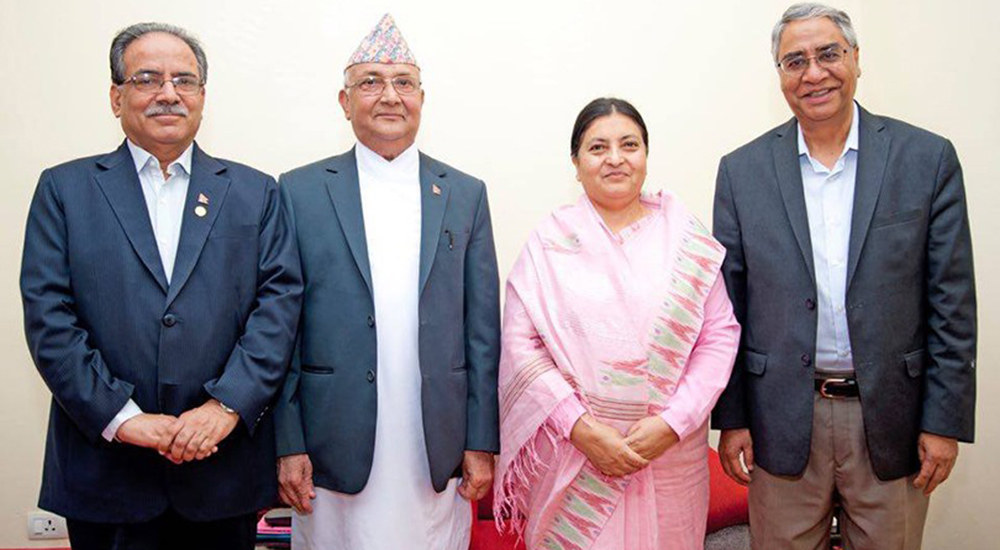
Is this a multi-party provision or an independent one?
Nepal has adopted a multi-party system. Parliamentarians are subject to the party’s rules and regulations. This is the essence of a multi-party system. It is not that Article 76 (5) allows MPs to be independents.
In the absence of a dispute, there is no need to question the support of 149 or 153 members of parliament. Here, however, both claims are disputed. CPN-UML and People’s Socialist Party MPs have informed the President in writing that they have supported different claimants and the concerned parties are ready to take action against them.
According to Tika Dhakal, Press Advisor to the President, there is no possibility of accepting both the claimants as it is clear that in reference to the suspension/expulsion process that will be completed within a maximum of 15 days, the arithmetic of the vote of confidence required by the claimants within 30 days is automatically divided.
As the People’s Socialist Party has adopted a bi-presidential system, the process of support or action as required by its constitution may require the immediate consent of both the chairpersons to be legal. Here, Sher Bahadur Deuba can get the benefit of the doubt. This is the reason why the Election Commission could not resolve the dispute of the CPN earlier.
However, this does not seem to be the case with the CPN-UML. Dhakal told Nepal Press that the claim submitted by Sher Bahadur Deuba was refuted automatically as the party chairperson and the leader of the parliamentary party had informed the President before the decision that a member of the House of Representatives who had violated the party’s whip would be suspended immediately.
Both or one of the claimants may have thought that if the President had appointed the Prime Minister, a vote of confidence could have been taken before the party proceedings of taking action were completed. Or the opposition coalition, which feels that the Speaker has a ‘good office’, may have expected the process of party proceedings for taking action to be carried out as per their interests or benefits.
Dhakal says, “However, these issues are out of the President’s concern as they are the subject of partisan maneuvering. The president only makes decisions after studying the aspects of the constitution and the law.”
In the case of the CPN-UML and the Janata Samajwadi Party, the support of the party is on one side and the support of some members of parliament is on the other. As a result, both the claimants’ petitions are clearly subject to the provisions relating to the division of the Political Parties Act and the secession clauses.
In such a situation, the argument that the President should have identified or recognized the signatures of the members of parliament is a matter of inconsistency in principle and law. The Political Parties Act has prescribed a separate process for the division of parties.
The President’s Office is not a place to go to for party division. The President’s institution is a place to maintain the unity of all parties and the nation, not to divide it. The Parliament, not the Office of the President, is the only place to separate the majority and the minority by counting the number of members of parliament.
Claiming a majority by counting the minority MPs of other political parties as independents becomes a breach of the party system.
Members of the House of Representatives who wanted to support one of the two prime ministerial claimants outside the party’s decision had to go through the process of partition or maintain their independent status.
This would have been the right way to do it, but it was almost impossible.
Dhakal says, “Even if the post of Member of Parliament remains the same when appearing before the President, as the number of MPs that will be at least suspended due to immediate action taken by the party is clear, it can be understood that the grounds presented by both claimants for a vote of confidence was not credible.”
Therefore, majority impossible
Apart from these immediate and short-term issues, the President also seems to have studied the way forward. Suppose a party delays its proceedings and a member of the House of Representatives violates the party whip, and a claimant is elected Prime Minister and receives a vote of confidence – even then, action will be taken.
Therefore, under Article 76 (5) of the Constitution, the majority of the claimants submitted to the President for the appointment of Prime Minister became like ice, which gradually melted away without being used. Oli and Deuba had to present a solid majority, which is also the essence of the constitution.
It is clear from this that the newly formed government will immediately only have a minority vote and the budget, policies, and programs will not be passed, the bills will not be passed and the government will not be able to work, which is also the situation of the current Prime Minister KP Sharma Oli.
The purpose of giving a new government by the parliament is not to create a situation alike or worse than this. On the contrary, the purpose of the constitution is to give stability, not to weaken the system and continuously keep electing a Prime Minister.
Therefore, under Article 76 (5) of the Constitution, the majority of the claimants submitted to the President for the appointment of Prime Minister became like ice, which gradually melted away without being used. Oli and Deuba had to present a solid majority, which is also the essence of the constitution. Therefore, it seems natural for both the claims to be rejected.
Ramesh Lekhak’s argument and the President’s limits
Leader of the Opposition Ramesh Lekhak is also a well-known lawyer. He says that Article 76 (5) of the constitution should be returned to, as the unconstitutional Prime Minister dissolved the House of Representatives illegally.
In a conversation with Nepal Press, he said that KP Oli can not make a claim for Prime Minister as per Article 76 (5) and that the President can not accept such a claim.
Ramesh Lekhak questions how Oli can claim the support of 153 members when he did not go into the process of taking a vote of confidence as per Article 76 (5) due to lack of majority until just an hour earlier. His question is politically valid.
However, the President has to look at the constitution and the law here as well. As a member of the House of Representatives, Oli has submitted a memorandum to the President with the support of 121 UML and 32 PSP MPs. Accordingly, the writ petition demanding the appointment of Oli as the Prime Minister under Section 76 (5) has also reached the Supreme Court.
After studying the claims of both Oli and Deuba, the President seems to have made a prudent decision by paying attention to the phrase mentioned in Article 76 (5) of the Constitution, “If such a member presents a basis for obtaining a majority in the House of Representatives.”
Article 66 of the Constitution defines the President as solely ceremonial and as the body to implement the recommendations of the Council of Ministers. Article 76 (5) of the same constitution also gives the President the right to exercise discretion. This may be a contradiction in itself, but the current developments are the legal truths until the constitution is amended or the court interprets it differently.
There is also a debate arising on the provision that no prosecutions against activities of the President will be run in the court. All these issues have now reached the jurisdiction of the Supreme Court. The obligation to determine the boundaries of state bodies and organs by interpreting the rest of the constitution is now in the hands of the Supreme Court.



